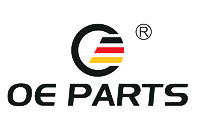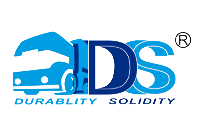Shentou provides on site services
such as factory audit and pre shipment
inspections in China
such as factory audit and pre shipment
inspections in China
Shentou Services
Subaru Flawed Inspections
Subaru, the Japanese automobile manufacturer, had always been known for high performance and versatility since the first model SUBARU 360 was released in 1958.
On October 27, 2017, however, the head of Subaru revealed that over the past 30 years, the final process inspectors who inspected the finished vehicles did not actually have the required qualifications. These unqualified employees borrowed seals from authorized employees and simply stamped documents to show vehicles had passed the tests. The incident involved 255,000 vehicles and the recall costs would exceed 10 billion yen (approximately USD88.55 million).
In fact, flawed inspections by un-qualified inspectors at automotive manufacturing companies are not rare and even more wide-spread in many different ways in the aftermarket manufacturing industry. During regular supplier audits for oversea clients, Shentou has discovered various practices of flawed inspections.
For example, when auditing one supplier recently, we found the factory, in order to save costs, had no dedicated inspector for first-off piece as well as process inspection on the production line. All first-off piece inspection records were filled in by production line operators. When the factory quality managers were challenged on this, they responded that the inspections were to be carried out by field workers based on internal policies but then failed to provide documentation to prove the workers had been properly trained and qualified.
During another supplier audit, it was discovered that the signatures on the audit reports did not match the actual auditors. It turned out that the auditor qualification certificate was held by one of the owners of the factory, someone not involved in quality management, and the actual auditors were completely un-qualified. The factory came up with the strategy so as to avoid the costs of repeated trainings due to constant personnel change or loss. The thinking was to have people unlikely to leave the factory to be qualified as internal auditors even though they have nothing to do with quality management. So the qualification certification is just a piece of paper for dealing with audit requirements.
All of these phenomena have shown that these factories are not strict with the operations of the quality management system. They not only fail to meet the standards of automotive quality management system but also potentially bring about serious quality risks.
According to IATF 16949:2016, Section 7.2, on competence, organizations shall establish and maintain documentation processes, identify training needs including awareness, and prepare all personnel engaged in compliance activities that affect product requirements and processes ability. Personnel assigned to specific assignments should be accredited as required, with a particular focus on satisfying customer requirements. At the same time, there are also clear requirements on the capabilities of internal auditors and second-party auditors.
One of the differences between this requirement and ISO/TS16949 is the increased awareness. Employees are required to be aware of their impact on product quality and the importance of their activities in achieving, maintaining and improving quality. It also includes customer requirement and the risks noncompliance may bring to the customers.
In some small and medium-sized aftermarket manufacturing companies, even though there is no full-time first-off piece and process inspectors and inspections are completed by assembly operators, factories must not only ensure that these workers are properly trained with knowledge of MSA and other related inspection methods as well as skills to select and use appropriate inspection tools, but also make timely records. For processes with special requirements, factories must ensure that the inspectors have received training and been assessed to have the job qualifications.
This article was first published in December of 2017
keywords:Product Development Project Management Services Post COVID-19 Factory Audits







